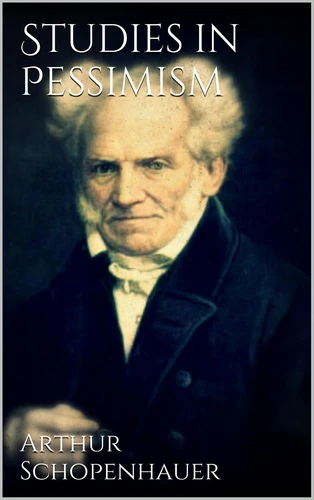
Studies in Pessimism
Par :Formats :
Disponible dans votre compte client Decitre ou Furet du Nord dès validation de votre commande. Le format ePub est :
- Compatible avec une lecture sur My Vivlio (smartphone, tablette, ordinateur)
- Compatible avec une lecture sur liseuses Vivlio
- Pour les liseuses autres que Vivlio, vous devez utiliser le logiciel Adobe Digital Edition. Non compatible avec la lecture sur les liseuses Kindle, Remarkable et Sony
 , qui est-ce ?
, qui est-ce ?Notre partenaire de plateforme de lecture numérique où vous retrouverez l'ensemble de vos ebooks gratuitement
Pour en savoir plus sur nos ebooks, consultez notre aide en ligne ici
- Nombre de pages116
- FormatePub
- ISBN978-3-7494-3302-5
- EAN9783749433025
- Date de parution11/03/2019
- Protection num.Digital Watermarking
- Taille280 Ko
- Infos supplémentairesepub
- ÉditeurA PRECISER
Résumé
Unless suffering is the direct and immediate object of life, our existence must entirely fail of its aim. It is absurd to look upon the enormous amount of pain that abounds everywhere in the world, and originates in needs and necessities inseparable from life itself, as serving no purpose at all and the result of mere chance. Each separate misfortune, as it comes, seems, no doubt, to be something exceptional; but misfortune in general is the rule.
I know of no greater absurdity than that propounded by most systems of philosophy in declaring evil to be negative in its character.
Evil is just what is positive; it makes its own existence felt. Leibnitz is particularly concerned to defend this absurdity; and he seeks to strengthen his position by using a palpable and paltry sophism. It is the good which is negative; in other words, happiness and satisfaction always imply some desire fulfilled, some state of pain brought to an end.
Evil is just what is positive; it makes its own existence felt. Leibnitz is particularly concerned to defend this absurdity; and he seeks to strengthen his position by using a palpable and paltry sophism. It is the good which is negative; in other words, happiness and satisfaction always imply some desire fulfilled, some state of pain brought to an end.
Unless suffering is the direct and immediate object of life, our existence must entirely fail of its aim. It is absurd to look upon the enormous amount of pain that abounds everywhere in the world, and originates in needs and necessities inseparable from life itself, as serving no purpose at all and the result of mere chance. Each separate misfortune, as it comes, seems, no doubt, to be something exceptional; but misfortune in general is the rule.
I know of no greater absurdity than that propounded by most systems of philosophy in declaring evil to be negative in its character.
Evil is just what is positive; it makes its own existence felt. Leibnitz is particularly concerned to defend this absurdity; and he seeks to strengthen his position by using a palpable and paltry sophism. It is the good which is negative; in other words, happiness and satisfaction always imply some desire fulfilled, some state of pain brought to an end.
Evil is just what is positive; it makes its own existence felt. Leibnitz is particularly concerned to defend this absurdity; and he seeks to strengthen his position by using a palpable and paltry sophism. It is the good which is negative; in other words, happiness and satisfaction always imply some desire fulfilled, some state of pain brought to an end.


















